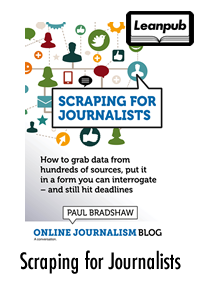A new survey for journalists, bloggers and online publishers, which can be found at this link, aims to collect information about their experiences of and views on libel and privacy law
A system of arbitration is at the heart of Lord Justice Leveson’s recommendations, and different versions are included in the the government’s draft Royal Charter and the industry’s own proposals [PDF].
The suggestion is that an arbitration service could deal with libel and privacy complaints that would otherwise go to court.
Last minute amendments to the Crime and Courts bill (now Act) would allow for bloggers to opt into the regulatory arbitration system and receive costs benefits.
Additionally and separately, recommendations have also been made for Mediation and Early Resolution in defamation disputes.
However, there is very little solid data about the nature and quantity of legal claims made against the media, including small bloggers. Because the majority of libel claims, for example, are believed to be resolved out of court, there is no complete record of disputes.
In short, little is known about bloggers’ and journalists’ actual legal experiences and opinions.
In an effort to build a better picture and to help inform the development of new alternative dispute resolution mechanisms, I am launching a survey as the final part of my doctoral project at the Centre for Law, Justice and Journalism (CLJJ), City University London.
This questionnaire is open to all types of journalists and online writers who expect their readership to be predominantly based in England and/or Wales.
Please take part and share your experiences and encourage your colleagues and friends to participate as well.
All data will be collected anonymously with no identification of organisations or individuals.
The questionnaire can be found here:
Many thanks for your help! If you have any questions you can email me: (judith.townend.1@city.ac.uk) or tweet (@jtownend).
About the project
This survey is part of Judith Townend’s doctoral project at the Centre for Law, Justice and Journalism (CLJJ), City University London. The research project, which has been given ethical approval by the CLJJ, explores how journalists and online writers are affected by libel and privacy law, as well as other social and legal factors. It will draw attention to the issues faced by online writers and journalists, and help inform the development of resources in this area.
About this questionnaire
- The questionnaire is open to all types of journalists and online writers who expect their readership to be predominantly based in England and/or Wales.
- It should take between 10 and 30 minutes to complete, depending on your experiences and views. Some questions require an answer so you can be taken to the next relevant question.
- All data will be collected anonymously with no identification of organisations or individuals.
- The information you have submitted will included in a final report to be published in 2013/14, which may be used for future online and print publications.
- Please contact Judith Townend with any questions, or to obtain the final results.
Contact details:
Judith Townend, c/o Peter Aggar, Centre for Law, Justice and Journalism, City University London, Northampton Square, London EC1V 0HB, Tel: +44 (0)20 7040 8167
E-mail: judith.townend.1@city.ac.uk



